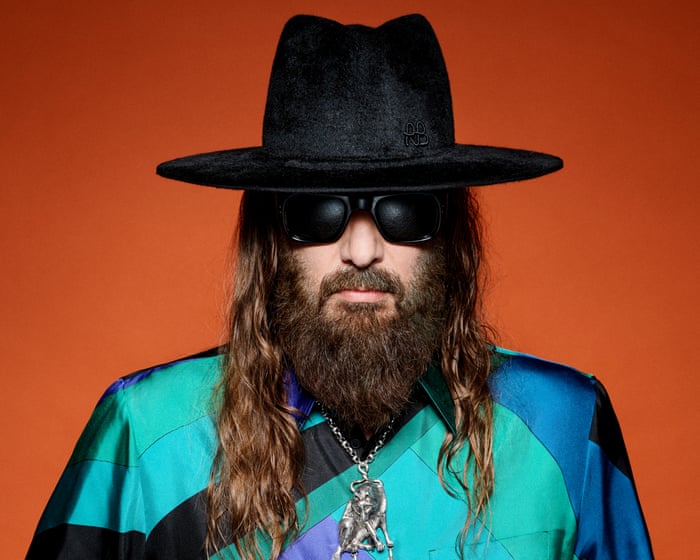This year’s Booker Prize judges faced a crowded field, with numerous eligible books from previously nominated authors—including five new novels by past winners alone (John Banville, Kiran Desai, Alan Hollinghurst, Ian McEwan, and Ben Okri). Among these, Hollinghurst’s absence is surprising, given the acclaim for Our Evenings, his elegantly crafted exploration of gay life in Britain over the past seventy years. But it’s no shock that Desai’s The Loneliness of Sonia and Sunny leads the pack—an epic twenty years in the making since her last Booker win, set for release this September.
Spanning nearly 700 pages, the novel traces a love story between two people torn between India and the U.S., family duty and personal ambition, connection and solitude. Immersive and subtly humorous, with richly detailed prose, it stands as a strong contender on a longlist dominated by fresh voices—nine authors are making their Booker debut. Family narratives take center stage, whether intimate and direct, like Claire Adam’s Love Forms (about a woman forced to give up her child as a teenager) or Ben Markovits’s The Rest of Our Lives (a father reflecting on life after his children leave home). More often, though, family serves as a lens for examining broader historical forces.
Desai’s novel weaves an intricate global tapestry, while Tash Aw’s The South—the first in a planned quartet—follows two Malaysian farming families in the 1990s amid political upheaval and looming climate disaster. Susan Choi, whose Trust Exercise was a standout in 2019, returns with Flashlight, a more restrained but ambitious exploration of a family with roots in Korea, Japan, and the U.S., revealing how political turmoil reshapes individual lives.
Two debut novelists tackle history with inventive storytelling. Maria Reva’s Endling starts as a darkly comic romp through Ukraine’s marriage industry before Russia’s invasion shatters the narrative, questioning fiction’s role in crisis. Albanian-American writer Ledia Xhoga’s Misinterpretation plays with realism, tracing an Albanian interpreter in New York caught between cultures, battling trauma and compassion fatigue as she navigates mistranslations and fractured connections.
Two formally daring books revel in narrative disruption. Katie Kitamura’s Audition layers contradictory accounts of a relationship between an older actress and a younger man, probing identity and performance. Natasha Brown’s Universality satirizes today’s media landscape, dissecting viral outrage and culture wars through a fragmented, puzzle-like structure.
The remaining four books, all by male authors, counter claims of a crisis in British male writing.
2025 Booker Prize Longlist:
– Love Forms – Claire Adam (Faber)
– The South – Tash Aw (4th Estate)
– Universality – Natasha Brown (Faber)
– One Boat – Jonathan Buckley (Fitzcarraldo Editions)
– Flashlight – Susan Choi (Jonathan Cape)
– The Loneliness of Sonia and Sunny – Kiran Desai (Hamish Hamilton)
– Audition – Katie Kitamura (Fern Press)
– The Rest of Our Lives – Ben Markovits (Faber)
– The Land in Winter – Andrew Miller (Sceptre)
– Endling – Maria Reva (Virago)
– Flesh – David Szalay (Jonathan Cape)
– Seascraper – Benjamin Wood (Viking)
– Misinterpretation – Ledia Xhoga (Daunt Books Originals)These authors all excel at delving into inner lives in captivating ways. Jonathan Buckley crafts lean, philosophical novels reminiscent of Rachel Cusk. In his thirteenth book, One Boat, a grieving woman travels to Greece, where her journey sparks meditations on ethics, memory, and the workings of the mind. Benjamin Wood’s Seascraper is a quietly atmospheric novel about a young man who continues his grandfather’s trade of gathering shrimp along the shore, even as England moves forward without him. The restrained yet vivid prose digs into his hopes and dreams, making the story resonate far beyond its pages.
Andrew Miller’s The Land in Winter is set in postwar England during the bitter winter of 1962-63, capturing a country on the cusp of change. The novel immerses readers in the lives of two young married couples in the West Country, exploring their hearts with remarkable depth. Since its release last November, this book has held a special place for me—I believe it’s the finest work yet from a writer who has been producing exceptional fiction for thirty years. (On the other hand, I was disappointed that Sarah Hall’s Helm, a sweeping, millennia-spanning masterpiece due in August, didn’t make the Booker longlist—I’d been convinced it was a strong contender.)
The final standout, another of my favorites this year, achieves its power through an unusual approach: it completely avoids delving into its protagonist’s inner world. David Szalay’s Flesh is a contemporary everyman tale, following a man buffeted by forces beyond his control—from a bleak childhood in Hungary to military service and an ambitious climb in London’s cutthroat world. By keeping his antihero an enigma, Szalay raises profound questions about what we can truly know about others. It feels fresh, unlike anything I’ve read before—a feat only fiction could accomplish.
To explore all the books on the 2025 Booker Prize longlist, visit guardianbookshop.com. Delivery charges may apply.



